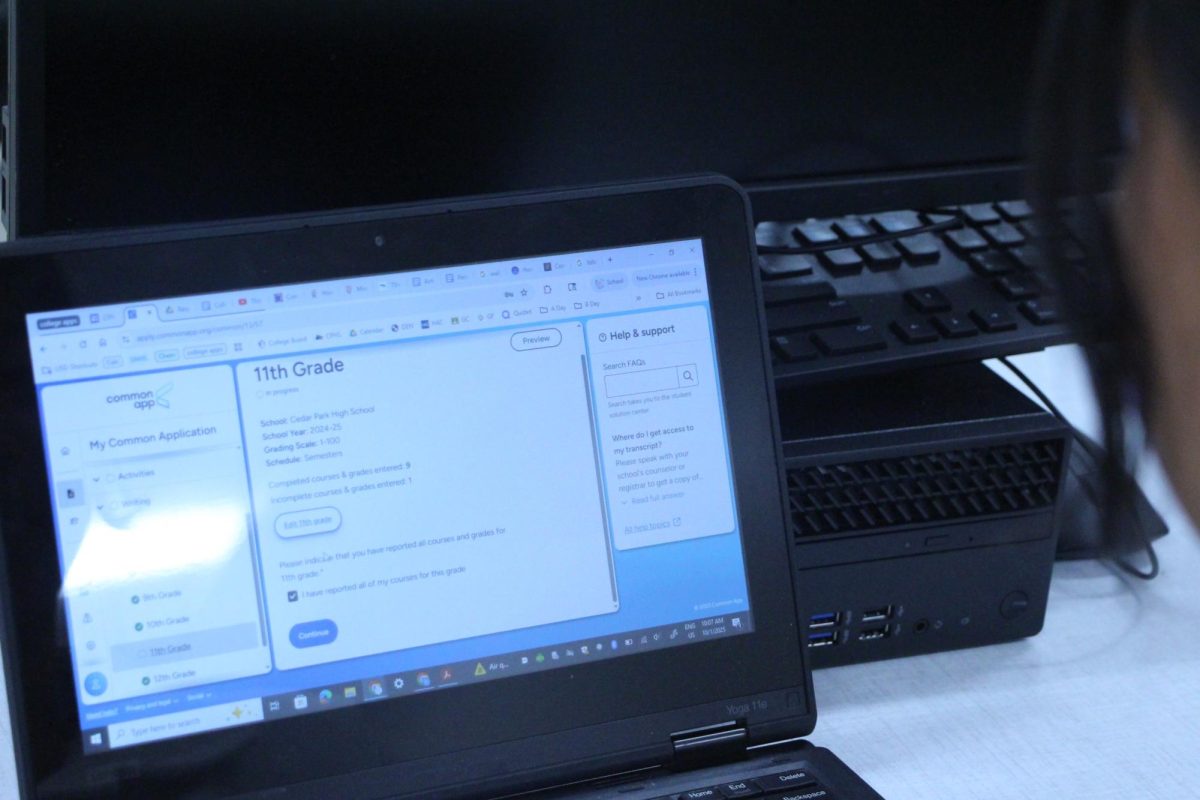Recently CPHS, as well as many other schools across the nation, experienced widespread panic concerning the H1N1 influenza virus, more commonly referred to as the “swine flu.” LISD had one suspected case at Baghdad Elementary, however, school officials decided not to close the school because the child was not at school during the contagious period. Even though no schools in LISD closed their doors, many outside events were cancelled. All UIL events, including sports, were postponed until May 12 due to the influenza virus. Not only were these events cancelled, but also many other activities including CPHS’s Penguin National Guard Show, Seasons and Soundwave choir shows and Spanish Club’s Fiesta Texas trip.
Although the Center for Disease Control, or the CDC, originally recommended that schools close for at least seven days when individual cases were confirmed, they recently announced that since symptoms are usually no more severe than the flu they suggest that schools only close if the H1N1 virus is causing widespread absences of students or teachers. Before the CDC made this announcement, over 100 schools closed either because of a confirmed case, or as a precautionary measure.
The H1N1 virus is thought to have originated in Mexico, and contrary to popular belief, it did not spread from pigs to humans. According to the CDC, the “swine flu” nickname was given because scientists originally believed there were similarities between this strand of flu and one that occurs in North American pigs. However, upon further research it was discovered that the H1N1 influenza virus has genetic similarities of many strands of the influenza virus including avian, swine and human strands.
The World Health Organization, WHO, categorized the virus as a level five pandemic, meaning that it is a widespread outbreak that has spread between at least two countries. The new nature of the virus means that few people will have immunity towards it. Also, there is no vaccine for the virus, however there are antiviral drugs, such as Tamiflu and Relenza, to prevent and treat the virus. Even with the dangerous aspects, the CDC believes that most people will recover without medical care because the symptoms of the H1N1 virus differ very little from that of the seasonal flu. Therefore, there should be little panic in the future about this new virus.








![As her hair blows in the wind, senior Brianna Grandow runs the varsity girls 5K at the cross country district meet last Thursday. Grandow finished fourth in the event and led the varsity girls to regionals with a third place placement as a team. “I’m very excited [to go to regionals],” Grandow said. “I’m excited to race in Corpus Christi, and we get to go to the beach, so that’s really awesome.” Photo by Addison Bruce](https://cphswolfpack.com/wp-content/uploads/2025/10/brianna.jpg)


![Broadcast, yearbook and newspaper combined for 66 Interscholastic League Press Conference awards this year. Yearbook won 43, newspaper won 14 and broadcast took home nine. “I think [the ILPC awards] are a great way to give the kids some acknowledgement for all of their hard work,” newspaper and yearbook adviser Paige Hert said. “They typically spend the year covering everyone else’s big moments, so it’s really cool for them to be celebrated so many times and in so many different ways.”](https://cphswolfpack.com/wp-content/uploads/2025/05/edited-ILPC.jpg)





![Sitting with her friend senior Sohpia Struve at last year’s Austin City Limits Festival, senior Ava Zuniga poses for a picture under a pavilion. They are frequent attendees at ACL, an annual music festival at Zilker Park. “I would recommend seeing a bunch of people,” Zuniga said. “This past year, we camped out for Chappell [Roan] for a really long time. I think the whole point of ACL, [which] is a lot of fun, is that you can go see so many different people, even if you don’t know them. So by camping by one person, it really limits yourself from being able to go see a bunch of people.” Photo courtesy of Ava Zuniga](https://cphswolfpack.com/wp-content/uploads/2025/10/EE9E9484-FE6F-4AA0-B5F5-0C177AB32841-1200x857.jpeg)
![Looking down at his racket, junior Hasun Nguyen hits the green tennis ball. Hasun has played tennis since he was 9 years old, and he is on the varsity team. "I feel like it’s not really appreciated in America as much, but [tennis] is a really competitive and mentally challenging sport,” Nguyen said. “I’m really level-headed and can keep my cool during a match, and that helps me play a bit better under pressure.” Photo by Kyra Cox](https://cphswolfpack.com/wp-content/uploads/2025/09/hasun.jpg)

![Bringing her arm over her head and taking a quick breath, junior Lauren Lucas swims the final laps of the 500 freestyle at the regionals swimming competition on date. Lucas broke the school’s 18-year-old record for the 500 freestyle at regionals and again at state with a time of 4:58.63. “I’d had my eye on that 500 record since my freshman year, so I was really excited to see if I could get it at regionals or districts,” Lucas said. “ State is always a really fun experience and medaling for the first time was really great. It was a very very tight race, [so] I was a bit surprised [that I medaled]. [There were] a lot of fast girls at the meet in general, [and] it was like a dogfight back and forth, back and forth.” Photo by Kaydence Wilkinson](https://cphswolfpack.com/wp-content/uploads/2025/03/Kaydence-2.7-23-edit-2.jpg)
![As the support team sits and poses for a photo in the cafeteria with the counseling team they eagerly wait to start their day. "We [all] seem to be a team, I get up every day and there's days where I don't want to go to work today, but I'm thankful that I have a job and I'm blessed to have what I have," Christopherson said. Photo Courtesy of Julie Weltens.](https://cphswolfpack.com/wp-content/uploads/2025/01/AF9E8470-10D7-4C91-BF28-EC8F86BAB66C-1200x852.jpeg)
![Jumping off the ground, senior linebacker Bennett Patton snatches the ball out of the air for an interception at Thursday’s game against Chaparral. Patton had two interceptions in the 56-14 victory, tying the school record for interceptions in a game. “I was just playing the game,” Patton said. “[I’m] going to go into next week, forget about it and stay humble.” Photo by Harper Chapman](https://cphswolfpack.com/wp-content/uploads/2025/09/bennett-interception.jpg)











